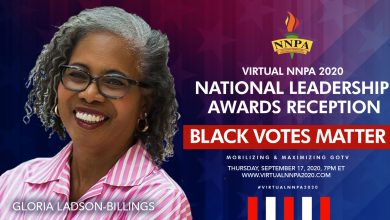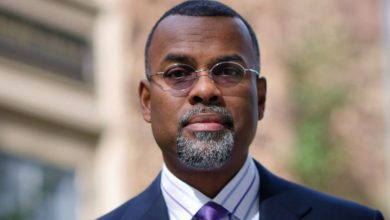
Celebrating Black History Beyond February
By Audrienne Roberts Womack
We respectfully acknowledge Carter G. Woodson, “the Father of Black History”, and founder of the Association for the Study of Negro Life, for initially launching “Negro History Week’ in 1926. At that time Woodson’s main objective for coming up with the initiative was to celebrate the accomplishments of African Americans and to better encourage the study and awareness of African American history and the many contributions that were made by African Americans. It was at that time that he noticed a lack of knowledge about African Americans in general and their contributions to history specifically. After all, he recognized that African Americans contributed immensely to the advancement of human civilization and that they should have been recognized and revered for their astounding mark in history, even though that was not the case.
“If a race has no history,” Woodson once wrote, “if it has no worthwhile tradition, it becomes a negligible factor in the thought of the world, and it stands in danger of being exterminated.” As African Americans, we have an immense history and impeccable traditions, that we should celebrate and safeguard against elimination and dishonor.
The response from Woodson’s appeal was incredible and Negro History Week quickly appeared in schools as well as throughout the community. At that time teachers requested more teaching materials to guide their students and many more Black History clubs were springing up everywhere. Even progressive white people at the time embraced the idea and did their part in supporting the efforts of Negro History Week.
Soon the demand grew for study materials and resources. The re-education of Black people and the nation towards Black History at the time was at an all-time high. It was those efforts that soon led to annual themes, city proclamations, and more participation from progressive white people that wanted to get involved. Soon the Association for the Study of African American Life and History (ASALH; formerly the Association for the Study of Negro Life), quickly grew and was able to form branches from one end of the country to the other.
Before Woodson’s death in 1950 he was concerned about the length of time Black History was being studied and felt that Black people should learn about their history daily and advocated for learning Black History throughout the year and not just an annual, one-time celebration. It was Woodson himself that encouraged a rethinking of Negro History Week to a Negro History Year. In the 1960s a major shift happened in the celebration and study of black history and soon Negro History Week became Black History Month.
Even in the 1940’s way before his death, proactive Black people in West Virginia were already celebrating Negro History Month. By the end of the 1960s when young Black people on college campuses became more enlightened and aware of their history and connection to Africa, Black History Month quickly and dynamically replaced Negro History Week. In 1976, ASALH used its leverage to help make the move from Negro History Week to Black History Month official and since then, every US President has delivered proclamations affirming ASALH’s annual theme.
President Gerald Ford officially recognized Black History month in 1976. He delivered a speech urging Americans to “seize the opportunity to honor the too-often neglected accomplishments of Black Americans in every area of endeavor throughout our history”. This acknowledgment of Black History month by a United States president was a well-deserved step in the right direction after years of city proclamations, demonstrations, and community outcry. After that, every American President followed in President Ford’s footsteps by recognizing Black History Month and its purpose.
However, it wasn’t observed formally until it was passed into law by Congress in 1986, which then became “National Black History Month.” The intent of the law was to make all Americans “aware of this struggle for freedom and equal opportunity” and hopefully a catalyst for awareness and appreciation for the accomplishments of African Americans.
As we reflect on the significant history of Negro History Week and then Black History Month a lot went into its conception. Even Carter G. Woodson himself felt the gravity of celebrating and honoring Black History throughout the entire year. It was his strong belief that Black History would be fully embedded in all classrooms as well as the community throughout the entire year. Tom Joyner, the retired syndicated radio host, once used the phrase, “Black History 365 days a year to mean that Black history isn’t a gimmick meant for one month out of the year, with a student assembly or a potluck dinner with traditional Black foods. Black History is American History.”
It’s long overdue for our educational institutions to recognize the value of infusing Black History throughout the curriculum on purpose. Black History Month could still be recognized in February in celebration of the contributions of Black People as it was once originally established, but moving forward Black History could also be better integrated with the current curriculum as well as throughout the entire school year. After all, Black History is American History and not separate from it and shouldn’t be treated as such.
Black History Month has for too long given the impression that February is the only time that Black People and Black History can be celebrated, studied, and discussed. Unfortunately, many teachers have gotten reprimanded for teaching outside the mandated curriculum if they were observed teaching Black History beyond February.
Those teachers that dared to extend it beyond 28 days, often found themselves having to look over their shoulders so that they were not reprimanded for not teaching to the prescribed program of studies. After all these years, we should still not be teaching Black History in isolation. We should still not be treating it as if it is a separate entity independent of all the other notable contributions in the history of the United States and the World.
In the article by Sachel Harris, Communications Manager of The New Teacher Project (TNTP) titled, Black History is American History: We Should Teach It That Way, strongly believes, “that’s why Black History Month should not be just a time to celebrate African Americans who have paved the way for us all to thrive. It should be a time to challenge the stubbornly persistent tendency to teach Black History as a footnote to American history.” Harris goes on to say, “We should commit to telling the complete and vibrant story of a complete and vibrant culture to both students and adults.”
As Harris and many others have suggested, the vastness of Black History is far too immense to congest into one month. Students and especially Black Students are being cheated out of the opportunity to learn more about the richness and depth of all they can learn on this subject in such a short time. Even as we talk about extending Black History throughout the year, we are still seeing a shameless absence of Black History and culture is not only in the curriculum but in textbooks as well.
There doesn’t need to be an extensive movement or political uprising to have this accomplished. All teachers and schools need to do is incorporate Black History into the existing curriculum and make it a natural and essential part of everyday instruction, rather than treating it like supplementary information or incidental add-ons. Black History fits uniformly everywhere in the curriculum. Students need to understand once and for all that Black History is an authentic part of American History at its best and should be regarded as such.
At the Center for Racial Justice in Education, they believe “the histories, stories, and voices of Black people should be centered, honored, and uplifted in school curricula every day.” However, they feel “we still see the absence of Black history and experience in our textbooks, required readings, STEM, and overall curriculum of our educational system.”
Even though we recognize that there still needs a lot of support in this area, as we move forward teachers can still purposefully and unapologetically integrate Black History into their daily curriculum year-round, by incorporating appropriate lessons and connections where they naturally fit.
In this way, students will learn throughout all disciplines the experiences, efforts, and viewpoints of African American People. For example, when teaching English Language Arts and discussing significant people that have had a compelling impact on American History, the inclusion of African Americans would create a natural and authentic dialogue. It would also be empowered to introduce students to the amazing linguistic contributions of African Americans to American English because many students have no idea of their immense contributions in this area of study.
Even in the study of Math and Science the contributions of African Americans have been enormous and to not include them in the instructional conversations would be preventing students from fully expanding their knowledge base and broadening their understanding of the subject. When discussing trigonometry and astronomy the conversation would not be complete without including Benjamin Banneker (1731 – 1806). Likewise, students are truly astonished by learning about space and astronauts and the inclusion of Katherine Johnson (1918 – 2020) and her contributions in the field of orbital mechanics, were essential to the success of astronaut John Glenn in 1962.
Carter G. Woodson reminds us, “Those who have no record of what their forebears have accomplished lose the inspiration which comes from the teaching of biography and history.” When looking back on all the devotion and commitment that went into establishing and preserving the integrity of Negro History Week and eventually Black History Month, it was at a time that African Americans were excluded from comprehensive conversations of our culture, our contributions, and our greatness.
Now everyone must know that we are viable, sustainable, and gifted people and in fulfilling Carter G. Woodson’s desire to celebrate Black History all year long, it is anticipated that it will be taught alongside American History where it rightfully should be taught. Since American History is defined as “the major events in US History,” Black History should once and for all be authentically represented and included in all textbooks.
Woodson expresses that, “If a race has no history, if it has no worthwhile tradition, it becomes a negligible factor in the thought of the world, and it stands in danger of being exterminated.” With that being said, our Black History should be approached as an integral part of the curriculum that is too valuable to dismiss or erase. Most importantly, vigilant teachers and school systems should also “lead the charge” fearlessly and courageously, by teaching Black History across the curriculum, throughout all disciplines, in the same way, all instruction is taught in US classrooms.
At the opening of the Washington D.C.’s National Museum of African American History and Culture in 2016, Lonnie G. Bunch II, the former Director of the Smithsonian Institution, reminds us that “There is no more powerful force than a people steeped in their history. And there is no higher cause than honoring our struggle and ancestors by remembering” and its remembering and honoring that come about as a direct result of consistent and deliberate instruction that is executed throughout the entire school year.



